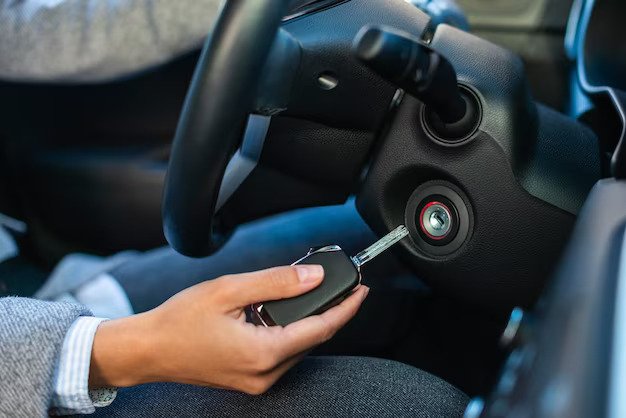Experiencing starting issues with your vehicle can be frustrating, especially when you’re in a rush or far from home. In South Africa, where reliable transportation is essential, it’s crucial to address and resolve common starting problems promptly. By understanding the common causes of starting issues and knowing how to troubleshoot and fix them, you can get back on the road quickly and confidently. Let’s explore some of the common starting issues and their solutions.
- Dead Battery: A dead or weak battery is one of the most common culprits behind starting problems. In South Africa’s extreme temperatures, battery performance can be affected. If you turn the ignition key and hear a clicking sound or the engine fails to start, it’s likely a battery issue. To troubleshoot, check the battery connections for corrosion or looseness. Clean the terminals if necessary and ensure they are tightly connected. If the battery is old or discharged, jump-start the vehicle using jumper cables or call for roadside assistance. Consider replacing an old battery to avoid future starting issues.
- Faulty Starter Motor: If you turn the ignition key and hear a grinding noise or a single click, the starter motor may be faulty. The starter motor is responsible for cranking the engine, and a malfunction can prevent the engine from starting. One way to troubleshoot this issue is by tapping the starter motor gently with a hammer while someone turns the ignition key. If the engine starts, it indicates a faulty starter motor that needs replacement. Consult a professional mechanic to diagnose and replace the starter motor if needed.
- Fuel Delivery Problems: Insufficient fuel supply or a clogged fuel line can prevent your engine from starting. Ensure that your vehicle has an adequate amount of fuel in the tank. If the fuel gauge indicates a sufficient level, check the fuel pump and filter for any issues. A malfunctioning fuel pump or a clogged fuel filter can disrupt fuel delivery, resulting in starting problems. Consult a qualified mechanic to diagnose and resolve fuel delivery issues.
- Ignition System Failure: The ignition system plays a crucial role in starting your vehicle. If the engine cranks but fails to start, it could indicate an ignition system failure. Check the spark plugs and ignition wires for wear or damage. Fouled or worn-out spark plugs can prevent proper ignition and cause starting problems. Replace the spark plugs if necessary, following the manufacturer’s recommendations. Additionally, a faulty ignition switch or ignition coil may also contribute to starting issues. Consult a professional mechanic for a thorough diagnosis and appropriate repairs.
- Faulty Starter Solenoid: The starter solenoid is responsible for transmitting electrical current to the starter motor, initiating engine cranking. If you hear a clicking sound when turning the ignition key, the starter solenoid may be faulty. To troubleshoot, try tapping the solenoid gently while someone turns the ignition key. If the engine starts, it indicates a faulty solenoid that requires replacement. Seek professional assistance to diagnose and replace the starter solenoid if necessary.
- Electrical Issues: Various electrical issues can hinder the starting process. Check for loose or corroded battery terminals and ensure that the battery connections are secure. Additionally, check the fuses and relays related to the starting system for any signs of damage or failure. If you are unfamiliar with electrical troubleshooting, it’s advisable to consult a qualified auto electrician for a thorough inspection and necessary repairs.
Encountering starting issues with your vehicle can be frustrating, but with a systematic approach, most common problems can be diagnosed and resolved. Remember to prioritize regular vehicle maintenance and inspections to prevent starting issues before they occur. If you are unsure about any troubleshooting steps or lack the necessary tools or expertise, seek assistance from a qualified mechanic or roadside assistance service. By addressing starting issues promptly and effectively, you can ensure reliable transportation and peace of mind on South African roads.











